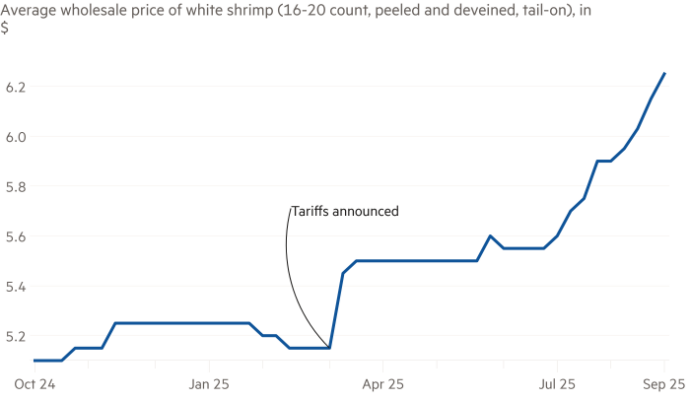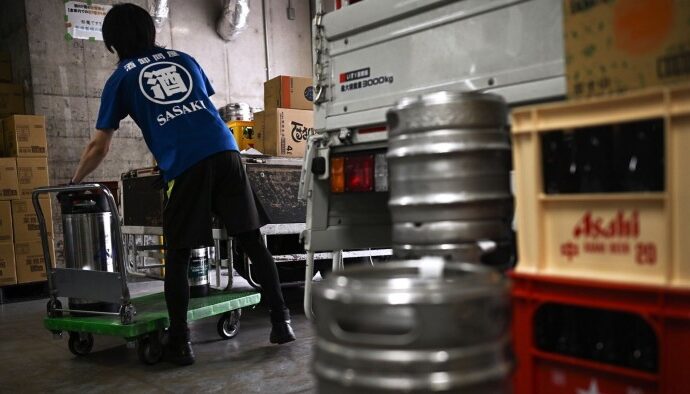Even at the height of summer, the Renewal Center, a nondescript building on the edge of Shanghai, can still draw a crowd. But its most enthusiastic attendance tends to come around China’s New Year, an event, like Christmas, that is normally spent with the family.
On a cold morning in January the cooks are already busy at work. Aside from the free meals of rice, vegetables and meat, which will be served to all guests, registered or otherwise, from 10.30am, red packets with a small amount of money inside are carefully laid out on a table.
Despite this observance of local tradition, there is something unusual about the scene, as though it has been transported from another time and place. The several dozen guests are dressed in a varied assortment of heavy coats, often accompanied by rucksacks, and their unusually open smiles reveal a number of missing teeth.
“Can you sing?” asks one woman, who introduces herself as Emily. A man, who cannot speak, offers me three small oranges. Another man, wearing a cross made of green jade, unprompted, but perhaps because I am a foreigner, mentions Jesus. A third man, who appears to be blind, is ushered through the crowd after receiving his gift.



In China, to the extent that it can be observed, homelessness is a matter for the family or the state. Despite the scale of the latter, decades of a one-child policy and domestic migration, social welfare is still deeply associated with the former.
But the Renewal shelter is an exception. It includes showers, a large TV, bookshelves, an edition of the board game Pictionary and an elevated rack that displays freshly laundered clothes. More are hung up in a separate building, where the door is kept unlocked. “It’s China,” says Andres, a volunteer from Switzerland — there is little prospect of a theft.
Founded by Jimmy McWhinney, the shelter is open three times a week. The 51-year-old Texan also runs a programme to help people return to work. At the New Year meal, many of its graduates come back to “help serve”, he says.
McWhinney, originally a missionary but no longer affiliated with any church, conceived his project in an earlier epoch. Today, it finds itself in a society markedly less characterised by the notion of transition to western models. Homeless shelters of this kind are “not in the modern Chinese social system”, he says, and “that’s why we still struggle to this day with registration”.
“Of course, they could just shut us down entirely,” he adds, “but someone somewhere knows what we’re doing and seems to be tolerating it.”
The charity launched its first shelter in the summer of 2008, close to Shanghai railway station. Initially, nobody came. “It had to have been three or four months,” says McWhinney. “It was definitely to the point it was getting awkward.”
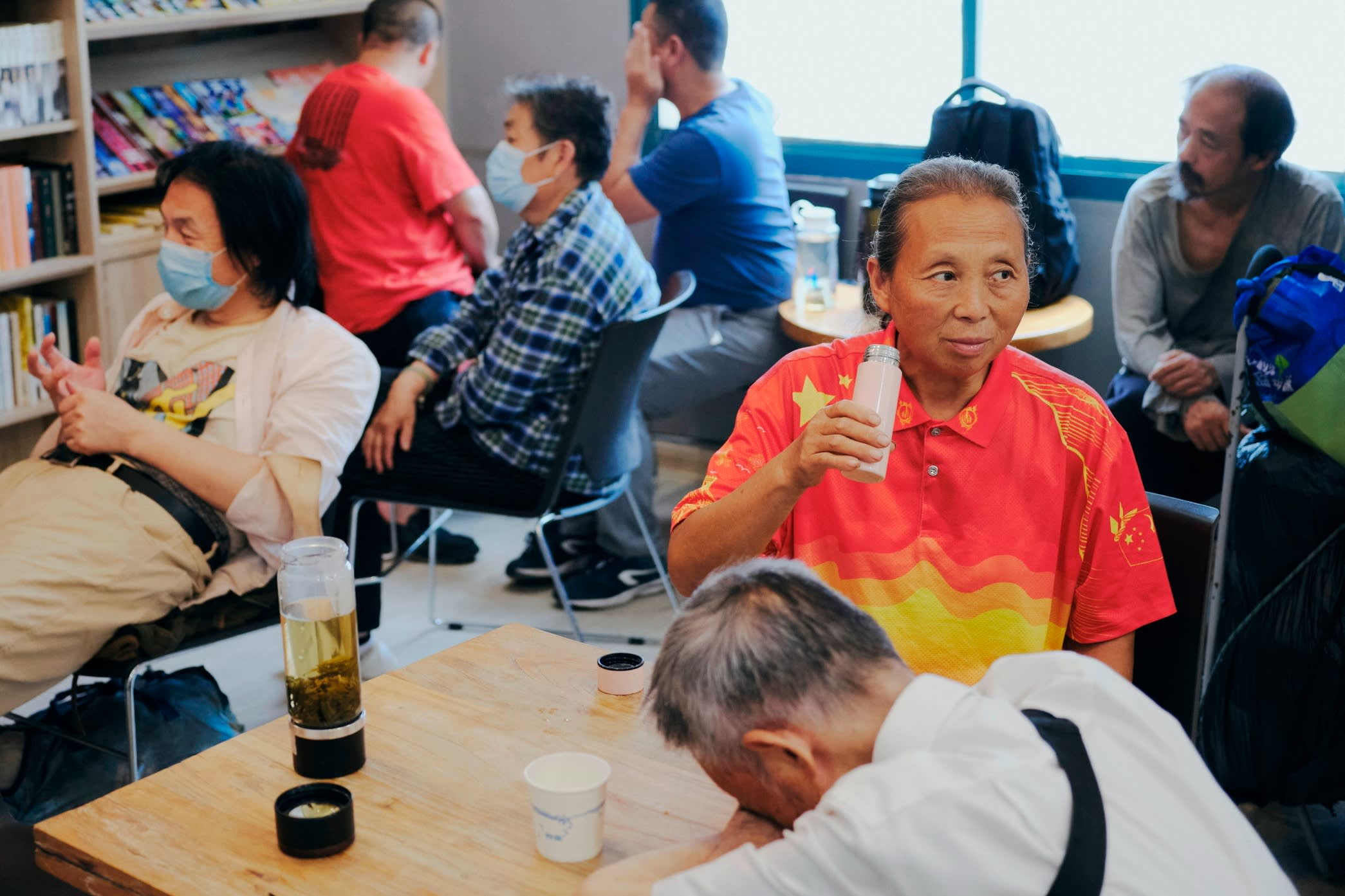
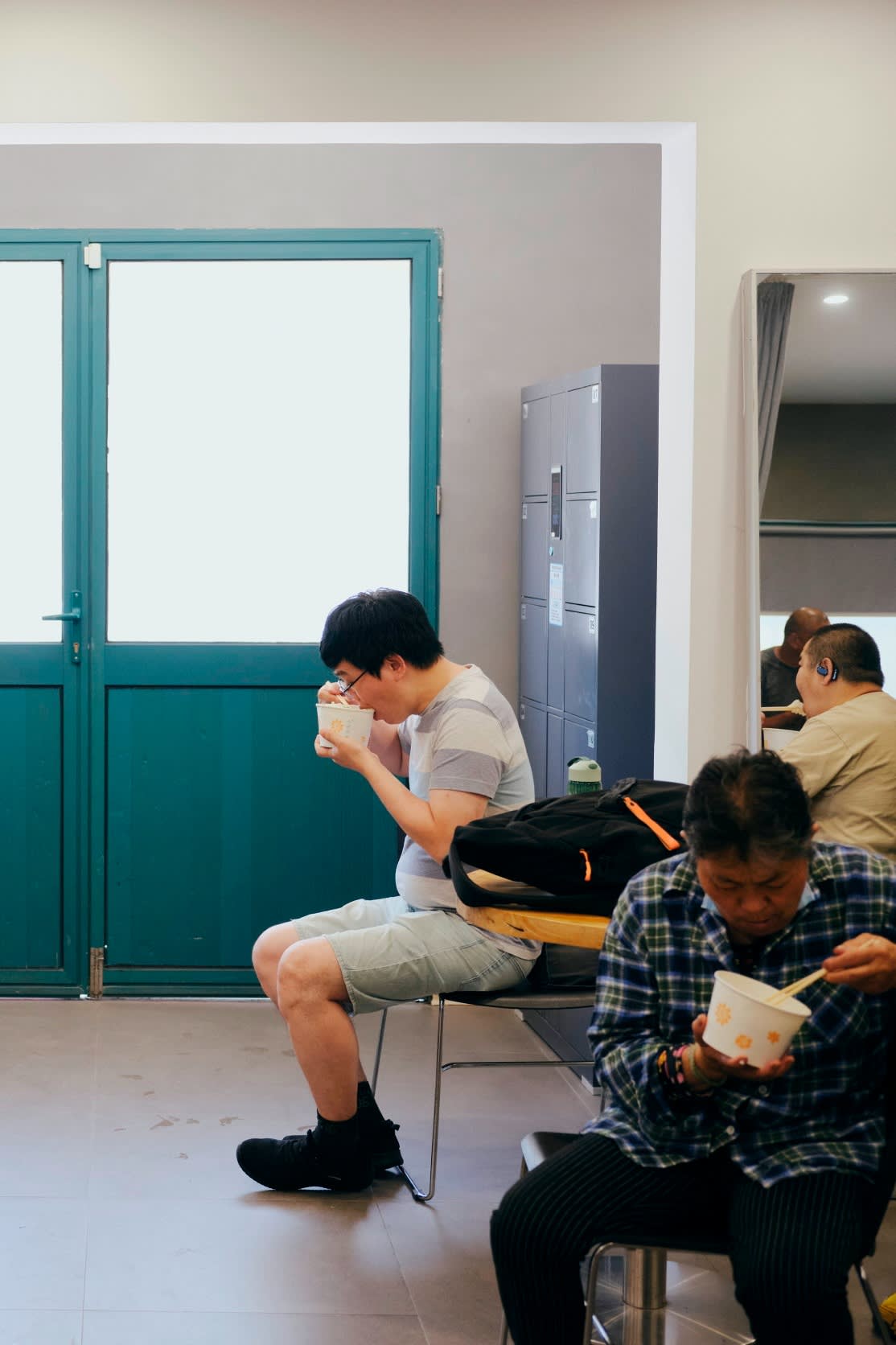
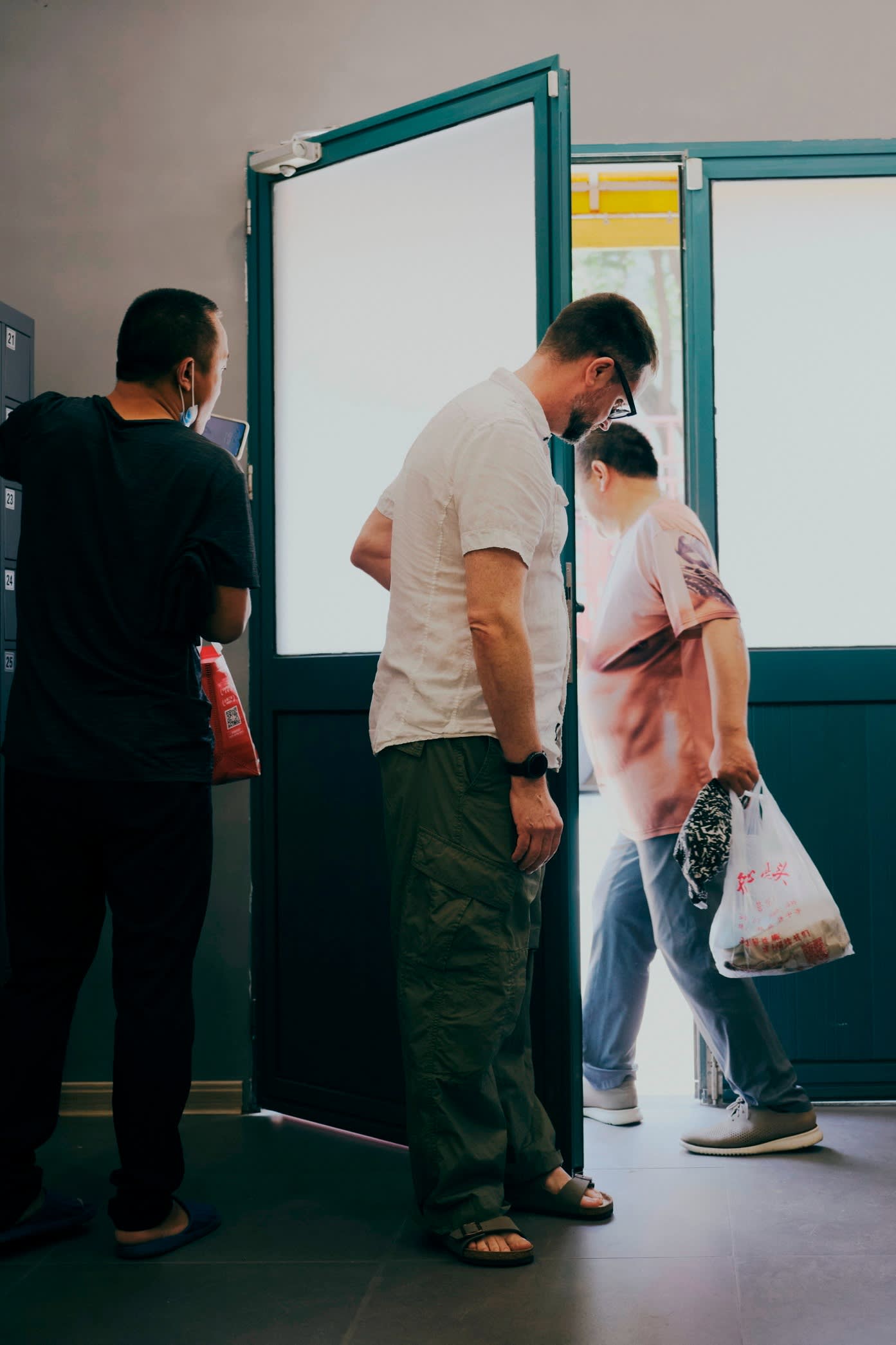
Then, during a torrential autumn downpour, one of his Chinese colleagues took shelter under a bridge. She encountered someone she thought was “probably homeless” and “he agreed to come back, once the rain let up, for a shower. And she texted ahead, so we were all ready, lined up.”
After that, numbers sharply increased.
“We learnt later people thought it was a scam, and just had no concept or idea of what was going on,” recalls McWhinney.
It was not simply a matter of the scepticism towards charity after a spate of recent donation scandals. In China, the matter of homelessness was interwoven with an ongoing economic and urbanisation boom. Starting in 1982, the country ran a system called “custody and repatriation”, under which migrant workers could be detained. A scandal in 2003, when Sun Zhigang, a migrant worker, died in a detention centre in Guangzhou, saw the government replace the system with new support centres.
In the English language, the word “homeless” has gradually replaced other terms: down-and-outs, tramps, hobos. In the Chinese language today the most common term is liu lang, or “roaming”. There are limited official statistics on numbers of homeless people, though the government does publish figures on instances of people receiving help at “relief management institutions” and elsewhere, which increased markedly in the 2000s and 2010s but have since declined (in 2023, this stood at 700,000, with 80,000 beds in such centres, below a peak of 3.7mn in 2015).
The Shanghai Civil Affairs Bureau says that homeless people are the city’s “most vulnerable” group and that assistance is an important part of strengthening social governance. It says its stations provide support including meals, medical services and employment assistance.
For McWhinney, the shelters currently in place remain something of a “mystery”, given they lack any “public-facing part”. The aim of helping people return home appears to remain the default response, which reminds him of authorities in Dallas buying bus tickets for homeless people.
Over the years, people from the government have been supportive, especially in private. But issues have also arisen. Soon after the project launched, McWhinney’s landlords cancelled leases on his apartment and two shelters without providing an explanation. At a local police station he managed to find the person behind the government pressure, who turned out to be “real nice. He was like, ‘We like what you’re doing, just don’t do it in Jing’an [a district of Shanghai].’”
One subsequent landlord did refuse a similar request from the government. The shelter moved to its current location, in a less wealthy part of the city, in 2016. At one point someone from the government got in touch over a WeChat post, similarly to say, “Hey, [we] like what you’re doing but . . . don’t expose it as a problem in the city.” At the same time, Renewal, which relies on donations, was partnering with restaurants, such as Element Fresh. Like many other organisations, it was hit hard by the pandemic and a reduced expat population.
“Even before Covid, I was seeing the writing on the wall,” McWhinney says. “If we don’t figure out our funding problem in the next couple years, we’re going to have to fold in a dignified manner and move on.”
When he first came to China in 2000, in his twenties, Jimmy McWhinney “just wanted to get out of Texas”. He first lived in Guangzhou, where he encountered glimpses of homelessness — people who “seemed to have everything in their backpack”, panhandling in the street, rumours of begging gangs with children as props.
His church’s approach was “gospel-centred”, aimed at “anyone who would listen”, though he soon had the impression people were “not really needing to hear this”. Hopeful that his time abroad would improve his résumé, he later embarked on a formal mission in Shanghai. He spent much of his time in language study, hoping to transfer into a job in finance afterwards. “[My church] basically said whatever you want to do, figure out what direction to go.” What “pushed him over the edge” was a particular moment: a mother rummaging in a trash can to feed her daughter.
Hanson Ye, 44, who initially visited the centre in 2009, went on to become a full-time operations manager. When he was seven years old, he was playing by the west lake in Huizhou and remembers following people on to a bus to Guangzhou, and then running away because “I knew they wanted to sell me”. After that, he was taken in by a teacher until he was 16 and later worked in a factory. In his twenties he became homeless. Once, he woke up to find his shoes had been stolen. “I never asked Jimmy why he wants to do this,” he says.
McWhinney estimates that his training programme has helped several dozen people over the past decade, providing them with housing and a routine designed to ease them into work. Without any transition, those involved often get into fights at work or stop showing up.
Everyone who has participated has suffered from a family breakdown, McWhinney says. When it comes to reconciliation, “We always leave it up to them.” He has travelled to hometowns across China, keeping a record of each case. Once, a woman lit fireworks for her son. After the initial elation, there may be a “blow-up”, even if it is in local dialect and he cannot follow.
His presence is “kind of a distraction from the painful issues”, he says. “I kind of compare it to being a clown, in a good way.”
The shelter does not provide overnight accommodation, but in the Shanghai winter, homeless people sometimes sleep in a part of Hongqiao railway station; the guards do not move them on. Several people there last winter had no living family, or lacked social ID cards. “I’m used to it,” said one man with bright white hair and a white beard. Every year he cycled around China, he said, as far as Tibet; his green coat had been gifted to him a few months earlier.
Almost as soon as I sat down, another man handed me a meal of rice and meat from a nearby restaurant. “First of all,” he said, pointing to the recorder on my phone, “turn that off.” After we ate, he poured boiling water on the plate, as though drawing on an old technique, to drink after the meal, in such a way that ensures every grain of rice is eaten.
McWhinney’s training programme takes place in a large house on the edge of Shanghai, of the kind that is sometimes shared by migrant workers. A schedule drafted in Chinese characters fills the day from 7.30am to 7.30pm: sweeping the floors, walking the dog.
McWhinney’s charity has no religious affiliation, despite his beginnings as a missionary. His church was non-denominational, independent and very conservative, and lately it had “drifted even more conservative”. His funding problems could be solved “tomorrow” if he introduced, say, Bible study. But he has no plans to do so.
“What I was taught growing up was a little further from reality than I feel like I’ve learnt,” he says, “and so I’ve kind of moved away from that world.”
He is expanding into Yunnan to launch a tea centre that could provide jobs. Hanson, who is recently married and has a five-month old son, is helping to set it up. In earlier years, they had a small café, which was fully supported by a restaurant, but the landlord died and they had to close. McWhinney still hopes to scale things up, and sometimes dreams about opening in Guangzhou, or Beijing, or even Los Angeles.
But his aim for now is to keep Renewal going on its current, relatively small scale. Over the years it has been running, the numbers have not really changed all that much, even by season: there were 282 visits in May, from 84 unique individuals, and a few trainees live in the house at any given time.
The sun is nearly setting and, in line with the schedule, the evening meal has been prepared. As we sit down to eat, it is unclear which language to speak. Then there is a moment of silence, as though an old habit is being briefly observed.
Thomas Hale is the FT’s Shanghai correspondent. Additional reporting by Haohsiang Ko and Wang Xueqiao
Find out about our latest stories first — follow FT Weekend on Instagram, Bluesky and X, and sign up to receive the FT Weekend newsletter every Saturday morning
